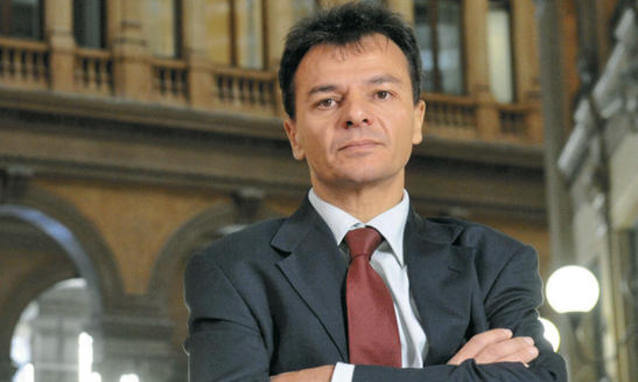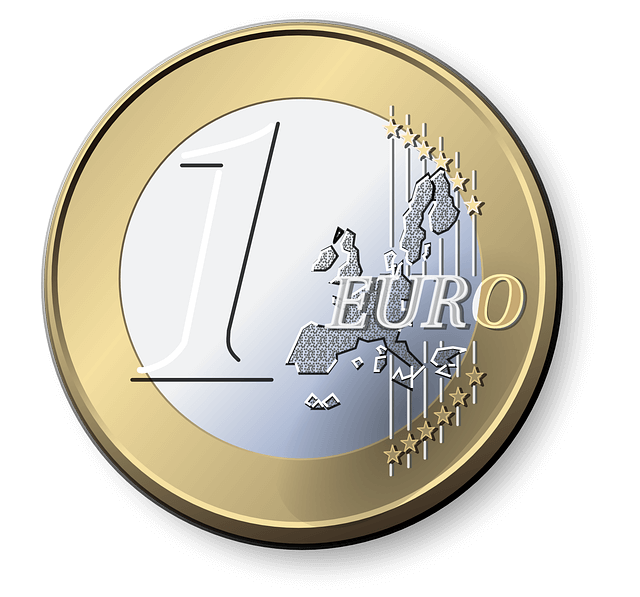By Steffen Stierle
Peace, prosperity and democracy. For decades, these promises were used to win large majorities in favour of European integration, including the introduction of the euro. However, since at least the late 1980s, the project has been heading definitively in the opposite direction. The Single Market, the Stability and Growth Pact, ECB statutes, the euro and the Treaty of Lisbon constitute a framework that only allows for a neoliberal policy. The EU now stands first and foremost for the dismantlement of the welfare state, a race to the bottom in wages and tax rates, expensive bank bailouts, powerful technocrats, powerless parliaments, isolation and a military build-up.
If there was just one puzzle-piece of empirical evidence missing to prove that the eurozone does not tolerate any alternative approaches, then it was supplied by the Greek government in the summer of 2015. The ECB and euro group’s response to the government’s attempt to discontinue the Troika’s austerity policy and stimulate the economy with public investment was a clear demonstration of power. The financial taps were turned off and the Greek national economy put into a coma until the government capitulated. Since then, the “government of the radical left” has been working to implement an agenda that includes drastic pension cuts, measures facilitating evictions and a gigantic package of privatisation measures. Conservative, social democratic or left-wing radical – it no longer makes any difference in the Europe of today.
Such evidence of the eurozone’s neoliberal, antidemocratic character can be found both prior to this and since. Consider how the Cypriot government was blackmailed into signing a wholly destructive programme in 2013, or the pressure that the European Commission is currently exerting on the centre-left government in Portugal. Nevertheless, the Greek case was especially striking and has triggered a broad strategic debate among the European Left. The key insight to arise from this debate is that if only neoliberal policy is possible in the EU/euro framework, then the Left must oppose that framework.
Left-wing soul-searching on the euro issue
Broad debates on abandoning the euro have since been held under labels such as “Plan B” or “Lexit” (left-wing exit) in many parties, movements, trade unions and academic circles. New left-wing groups have emerged to oppose the euro in many countries and international coordinating structures are gradually coming to the fore.
For example, international conferences were held in Paris and Madrid in January and February 2016, primarily organised from within the spectrum of left-wing parties and focused on alternatives to the euro. Further such conferences are planned in Berlin and Rome.
In Germany, a new network emerged towards the end of 2015, bringing together trade unionists, party members, activists and academics who share their rejection of the euro. In Austria, Attac is leading a broad debate on the realignment of the EU position. Moreover, a group called Euro Exit has long since become established in Austria. The organisation’s work now attracts a great deal of interest and it is itself has links to Salir del Euro in Spain, the LAE anti-euro party in Greece and others. The governing Portuguese Bloco de Esquerda (Left Bloc) is increasingly shifting towards a eurosceptic position. In France, 80 respected economists have signed a petition openly calling for a break with the European treaties. And in the UK there is now a left-wing campaign that aims to encourage the population to vote against EU membership in the referendum in June. These are just a few examples to show that quite a lot is happening at the moment in the area of Euroscepticism.
Multifaceted Lexit debates
The search for concepts and strategies in this complex situation – the search for a plan B – is now under way. A number of key discussion points are outlined below.
Plan B – supplement or substitute?
After the SYRIZA government accepted a new Troika programme despite the clear “no” in the referendum of 5 July 2015, it was reasoned in many quarters that the government lacked the requisite bargaining power. The government had left itself open to blackmail, the argument ran, because it was not prepared for an exit from the euro and therefore had to swallow all of the creditors’ conditions. The conclusion reached was that a plan B was needed – not to implement, but to present as a scare tactic in order to push through plan A, that is, changing the euro to be compatible with a non-neoliberal policy.
Contrasting with this is the stance that the euro inherently destroys the scope for an anti-neoliberal policy and that it is also not possible to do anything about that state of affairs. After all, the euro is not only a tool for blackmailing crisis-hit countries, but is in fact a fundamental cause of economic imbalances and the policy of cutbacks and liberalisation to which they lead. The first hit was Germany, the sick man of Europe, which responded to the capital flows to the south with the Hartz IV programme, temporary employment, etc. Now it is affecting the south, which is being forced to undergo a radical agenda of cutbacks.
Just a question of economics?
Many Lexit proponents are economists by trade and have argued for years that the euro cannot work unless it goes hand in hand with mutual debt liability, wage coordination, ECB state financing or other similar measures. They therefore argue that the euro should be replaced by an improved currency system.
While the economic argument is convincing, the euro actually works from a political point of view. It functions as a tool to slash tax and wage rates, dismantle the welfare state and drive forward privatisation. It is reasonable to assume that the poor design of the euro is not a product of economic incompetence on the part of the political elites and their advisors, but of the vested interest of the powerful in destroying welfare states, depressing wages and redistributing taxpayers’ money to big banks.
Seeing the topic in this light, we must therefore take a broader approach. At the end of the day, this is about democracy. The constraints of the euro regime not only result in neoliberal policy, but also immunise such regimes against democratic decisions. This was also made particularly clear with the “no” and the subsequent blackmailing of Greece. Lexit is therefore of relevance not only to economic experts.
First we take the euro, then…?
It is good that we agree at least that the euro must go, even if we have different motives. But then there is the next question of what to do with the EU.
The anti-euro/pro-EU argument runs as follows: the aforementioned imbalances that have an acute potential to exacerbate crises are consequences of the euro. If we were to get rid of the single currency, then we could, as in the past, appreciate and depreciate currencies against one another and thereby put an end to the race to the bottom with regard to wages, taxation and welfare benefits. Moreover, this camp contends, we need the EU in our globalised world to stand a chance of having our voice heard.
On the other hand, not only the euro was designed as a tool to enforce neoliberal policy. From the Stability Pact to the Single Market to the Treaty of Lisbon, throughout the EU construct it becomes apparent that such policies are the precise intended outcome. For that reason, an exit from the euro can only be the first step. Advocates of an anti-neoliberal policy must also be prepared to leave the EU.
But what about Europe’s united voice in the world? Well, the EU uses this voice above all to drive forward the radical neoliberal agenda around the world, either with trade agreements or military operations. Less Europe cannot harm the world. And forgoing global clout has not harmed the Norwegians, Icelanders and Swiss either. On the contrary.
Exit criteria
Irrespective of this discussion, it makes sense to focus on exiting the euro, since this is the subject of heated political debate. The euro is the basis of the brutal interventions by the Troika and the far-reaching reform plans for the coming years. Despite this, there are still those on the Left who reject calls for an exit as they fear that such a move would lead to chaos and that everything would get much worse.
Some even hypothesise that an end to the euro would lead to military conflict in central Europe. It is important to flesh out exit scenarios in order to dispel such concerns.
In the debates, it is assumed that exit strategies must be formulated differently from country to country. The Greeks, for example, are very cautious: as a small economy with their own currency, they could easily become objects of speculation for financial markets, and imports would become more expensive due to massive depreciation. Meanwhile, a most self-confident exit discourse can be observed among the French Left, which is convinced that the country is powerful enough to force the others into a cooperative, coordinated exit plan. After all, the uncoordinated exit of the second-largest euro economy could cause the entire currency union to collapse.
As a general rule of thumb, the larger and more productive a country’s economy, the easier an exit from the euro would be. Moreover, it is important to have loyal institutions on the domestic stage (which a left-wing government cannot automatically assume it does) and an external, at least medium-sized, central bank to support the currency; this doesn’t necessarily have to be the ECB. Collaborating with other currency areas is also conceivable.
Cooperation between (ex-)euro countries that seek to depart from the path of neoliberalism could also be helpful. Countries such as France, Italy and Spain could certainly have the power to stabilise smaller exiting countries, which would, at the same time, give rise to interesting potential alliances for an alternative integration project.
There is no perfect scenario, however. No exit is immune to disadvantages, uncertainties and risks. Nobody claims that an exit would be a walk in the park. However, the experiences of recent years show that an exit is, in many quarters, now a precondition for re-establishing the respect for democratic decisions and departing from the neoliberal course that is forcing more and more people into poverty and hardship.
EMS 2.0 and parallel currencies
Alongside such general exit considerations, there are a number of specific concepts for alternatives to the single currency. For instance, reviving the European Monetary System (EMS) has been the subject of many recent discussions in Germany. Under this regime, the euro countries would return to having national currencies, but peg them to each other within an exchange rate band of +/–15% and periodically decide on adjustments at the political level to avoid imbalances. This was how things worked before the introduction of the euro.
Funnily enough, this system already exists with Denmark as its only current member. This membership obliges the ECB to intervene should the Krone and the euro come too far out of balance. This gives Denmark stability, but also allows for making flexible adjustments to various economic developments.
However, it is generally agreed that the EMS should be reformed in order to weather today’s challenges. Among the existing proposals are sanctions for excessive export surpluses in order to keep imbalances in check. It would also need to be clarified whether the EMS solution could, if necessary, be imposed by a left-wing government unilaterally or whether cooperation between all governments would be required. This will determine how realistic this approach is. Seen from the perspective of European law, any EU member state may join the EMS. It would need to be clarified whether a country could leave the euro and remain in the EU.
Another idea that is under discussion in Italy especially is the introduction of parallel currencies. This is not an exit strategy in the strictest sense. The euro would not be abolished, but supplemented by national currencies. A left-wing government could circulate the parallel currency via salary payments in the public sector and welfare benefits and accept them as defrayment of tax debt, for example. This would help to reclaim a measure of monetary sovereignty and create scope for targeted investments that counter the EU’s policy of cuts. The appealing aspect of this is that governments would not necessarily depend on the others’ cooperation, which makes this a more realistic prospect.
On the other hand, this will not get rid of the euro. The neoliberal rules of the Stability and Growth Pact, the Fiscal Compact, the banking union, etc., would continue to apply and limit political room for manoeuvre beyond the realm of neoliberalism. Moreover, it seems questionable whether the European Commission, the ECB and powerful euro countries still governed by neoliberal regimes would accept this without mounting a counteroffensive.
A complex, unavoidable and important discussion
It is evident that this is a complex and multifaceted debate that is unavoidable and is being held in a targeted, knowledgeable and constructive manner in many quarters. The fact that this is possible today is a milestone in the resistance against the neoliberal project that is EU integration and the crisis policy of recent years. This debate takes account of the fact that this is a neoliberal, authoritarian project that cannot be changed. As many initiatives along the lines of “Another Europe is possible” have come to nothing, this strategic realignment is exceptionally important.
At the same time, the fact that this debate has made headway represents an important step towards halting the worrying rise of right-wing and far-right forces. The eurosceptic field has, until now, been the exclusive purview of Le Pen, the AfD, and Co. While the Left was only able to offer visionary remedies for a different Europe that no one could say how they would translate into reality, the Right had, from the outset, clear answers – albeit reactionary and inhumane ones – to the increasingly widespread rejection of the euro and the EU. The fact that this is now changing is a very positive thing!











